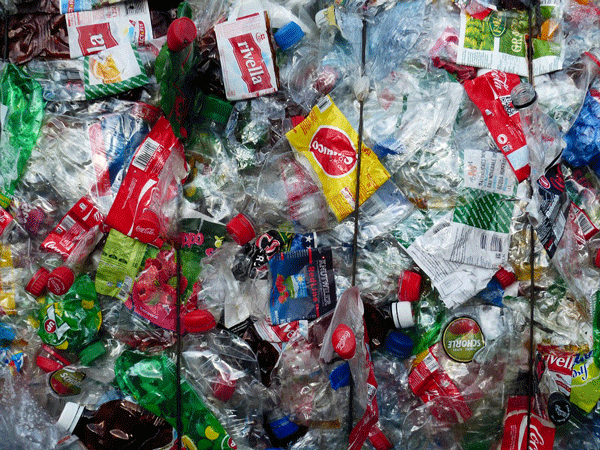New Delhi, Nov 29
The total mass of plastics on earth is twice that of all living mammals. Moreover about 80 per cent of all the plastics ever produced remain in the environment, pointed out a report by Centre for Science and Environment (CSE). Also amidst year 2000 to 2015, global production of plastic increased by a 79 per cent. If the plastic industry maybe assumed as a country, it would be Earth’s fifth most significant greenhouse gas emitter. The greenhouse gas (GHG) emissions from plastics would reach fifteen per cent of the global carbon budget by 2050, it stated.
Amidst these datas, India used 18.45 million metric tonnes (MMT) of plastic in 2018-19 and 59 per cent of this went into the packaging.
The new report quotes these mind-numbing data and information from international and national research to bring home the omnipresent character of the ‘plastic problem.
The report was released at a national conclave titled ‘The plastic life cycle’ that brought together key regulators, waste management professionals, urban and town planners, representatives from NGOs and journalists. The report was released jointly by Leena Nandan, secretary, Union ministry of environment, forest and climate change, Government of India; Parameswaran Iyer, CEO, NITI Ayog, Government of India; and Sunita Narain, director general, CSE.
Speaking at the occasion, Narain said: “We are given to understand that the problem of plastic is a waste management issue and not a material production issue because we can recycle it, burn and bury it, or ship it to other countries where it can be handled. But it is not that simple. We have crossed the last frontier on plastic with our current production and consumption patterns. Plastic has not gone away. Plastic that we produce on land is now ending up in our oceans, and from there and elsewhere, into our own bodies.”
Releasing the report, Leena Nandan pointed out that while the issue of managing plastic waste was extremely complex, it was not something that could not be resolved. Efforts to mitigate the ill effects of plastics have gained traction through the introduction of policies such as a single-use plastic ban and extended producer responsibility.
Empower Independent Journalism – Join Us Today!
Dear Reader,
We’re committed to unbiased, in-depth journalism that uncovers truth and gives voice to the unheard. To sustain our mission, we need your help. Your contribution, no matter the size, fuels our research, reporting, and impact.
Stand with us in preserving independent journalism’s integrity and transparency. Support free press, diverse perspectives, and informed democracy.
Click [here] to join and be part of this vital endeavour.
Thank you for valuing independent journalism.
Warmly,
Vishal Sarin, Editor





